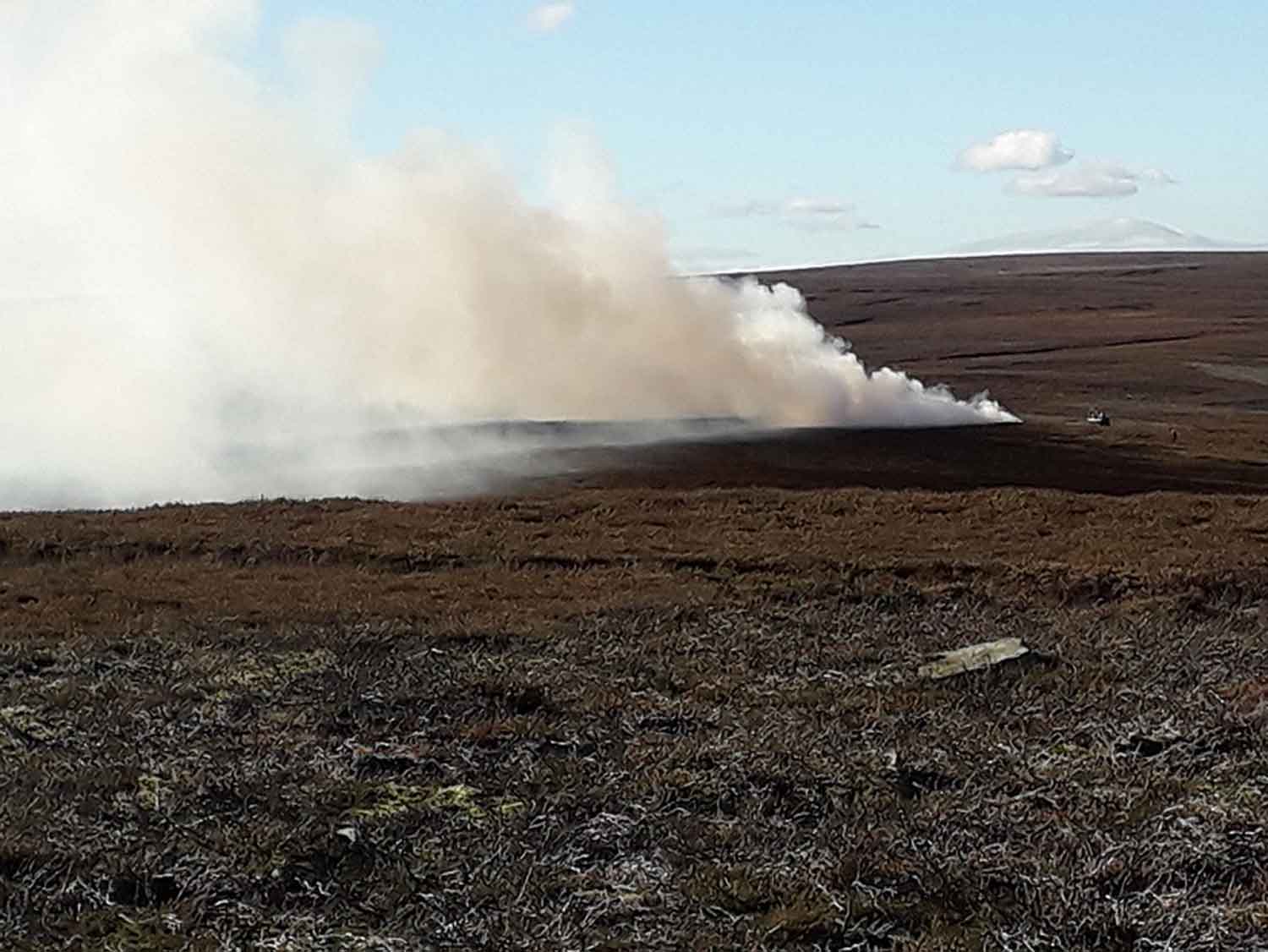Sheffield & Rotherham Wildlife Trust and Derbyshire Wildlife Trust are calling for all burning to stop following a spate of fires in the last few weeks.
Important uplands
Our uplands help counter climate change by removing carbon from the atmosphere and storing it in peat. Globally, peat habitats store 30% of all soil carbon. Burning vegetation that sits on top of the peat causes it to dry out, meaning that carbon is lost through a process called oxidation.
Roy Mosley, Head of Conservation and Land Management at Sheffield & Rotherham Wildlife Trust said:
“It’s very disappointing to see these continued fires on our moorlands in Sheffield. As well as being internationally important places for wildlife, our uplands provide a huge array of public benefits too. We want to see an immediate end to moorland burning.
“The Trust continues to engage with our local MPs on this issue and call upon the Government to put a stop to moorland burning once and for all”.
Climate and nature benefits of upland peat bogs
Upland peat bogs, such as those between Sheffield and Manchester, provide endless benefits for climate, wildlife and water. Not only do they store carbon, but they also reduce flood risk downstream, purify drinking water and slow the spread of wildfires when looked after properly.
Peatlands are also incredibly important for wildlife and are home to many rare and endangered species. Burning the vegetation threatens their survival and the wider ecosystem functions that they support.
Rachel Bennett, Wilder Landscapes Manager for Derbyshire Wildlife Trust said:
“The moorland burning season runs from 1st October until 15th April, year on year. The fires release huge plumes of smoke into the atmosphere which contributes significantly to climate change and reduces the air quality of those who live and work nearby.
“If we are serious about protecting our climate, then we must stop burning our uplands.”
Calling for an end to moorland burning
Sheffield & Rotherham Wildlife Trust and Derbyshire Wildlife Trust want to see a complete end to moorland burning and sustainable alternatives put in place, such as vegetation cutting to create firebreaks and new areas of heather growth.
Further information can be found on Sheffield & Rotherham Wildlife Trust’s Our Moors campaign. To learn more about the impact of moorland burning, read Derbyshire Wildlife Trust’s blog.
